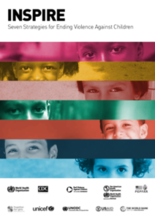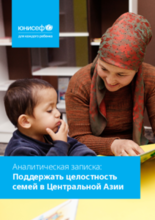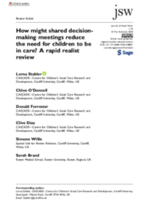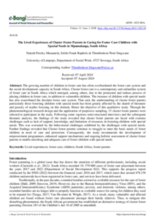Displaying 141 - 150 of 14557
The Chinese government is ending its intercountry adoption program, and the U.S. is seeking clarification on how the decision will affect hundreds of American families with pending applications.
Hope and Homes for Children, Lumos, Save the Children and Plan International, Transform Alliance Africa, together with the UN OHCHR are inviting children and young people to participate in online, oral consultations on the theme of Care and Support. The purpose of the consultation will be to gather inputs to help inform an expert workshop on the topic of care and support, which will be held in late in 2024 at the United Nations.
UNICEF has now issued a Request for Proposals in order to select a supplier for the provision of Baseline Evaluation of Ukraine Better Care Reform. Learn more about how to bid.
All under-18s have now been removed from Scotland's young offenders institutions and transferred to more child-friendly settings. The change follows suicides of young people while detained and the passage of a new law that bans children being sent to prison.
This article holds the State as responsible for the wellbeing of those it has taken the responsibility of protecting. These include people who have suffered violence, indignity, hunger and life-threatening circumstances. The five-year planning of state and district plans have utilised more resources than produced outcomes and output. In this article we put together a learning from strategies that can facilitate duty holders to emerge as more responsible actors during the pandemic that continues.
Каждый ребенок имеет право расти в способствующей развитию семейной среде.
This UNICEF policy brief finds that an estimated 203 children for every 100,000 children live in residential care across Central Asia – almost double the global average of 105 per 100,000. In this brief, UNICEF proposes seven policy recommendations to facilitate the closure of large-scale institutions and transition to family-based alternatives to institutional care in Central Asia.
The aim of this review is to articulate the key mechanisms through which shared decision-making meetings can work to help keep children safely out of care and at home. Data from the literature was supplemented with consultation to ensure relevance to the UK setting.
This qualitative study of cluster foster parents in Mpumalanga, South Africa, revealed that they are faced with extreme challenges such as lack of support, knowledge, and limitation of resources in fostering children with special needs.






